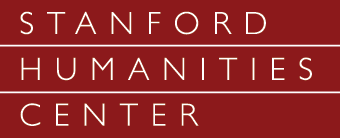Nicole Follmann is an undergraduate majoring in anthropology with a minor in Spanish. Her interest in transnational exchange in the ideas, products, technology, and culture of agriculture has developed through her work and research in urban gardens in Madrid and Cape Town and in her research among soybean farmers in Argentina.
What is the focus of your current research?
My research investigates how small- and mid-sized family farmers in central Iowa respond to critiques of their production (intensive, or "industrial" livestock or commodity agriculture). I am looking at how the local history of agricultural transitions shapes the way farmers discuss their work, how they situate themselves in debates about food systems sustainability, and how aspiring farmers negotiate the many influences and barriers to enter the field.
What drew you to this topic?
I am originally from rural central Iowa, with a family farming background. When I came to Stanford, I became interested in the vigorous debate about the crisis of American food systems: the environmental devastation wrought by monoculture agriculture and concentrated animal feeding operations and the public health catastrophe resulting from the subsidization of highly-processed, corn and soybean-based foods. I simultaneously became interested in global food security--and food sovereignty that is so often jeopardized by the "dumping" of cheap American corn on international markets. Curious about the portrayal of the farmers at the heart of these debates, I decided to study the producers themselves. I hope to unravel how they feel about and respond to the various representations of their profession by environmentalists, organic advocates, and the agriculture industry.
How are you conducting your research?
Over the summer of 2014, I spent ten weeks in rural central Iowa conducting anthropological fieldwork. I used ethnographic methods of participant observation and interviews, speaking with and learning from farmers, community members, and agriculture organizations in the area. In addition to coding my interviews to look for recurring themes, I am reading secondary sources and anthropological literature to write a thesis analyzing my findings.
What would people be surprised to learn about the topic you are working on?
People may be surprised to learn that about 80% of farms in Iowa are owned by families and individuals, while 8% are corporate farms, although the latter percentage is increasing. These two categories also overlap, as many farms incorporate in order to pass farms on to future generations. With the high cost of land, it is becoming increasingly difficult for the younger generation to begin farming without family support, even though the average age of farmers is 57.1 and many farmers are looking to transition their farming operation to someone else. It can be difficult to connect these beginning and retiring farmers, especially as wealthy out-of-state investors can present higher bids than young farmers.
In your view, why is it valuable to study this topic?
It is important, in debates about the ideal form of agricultural production, to understand the farmers whose livelihoods are at the center of discussion. Though they are impacted immensely by national policy and regulation, farmers continue to make decisions that affect rural communities, the environment, and national and international food security. Many farmers expressed the need to bridge the rural/urban divide and for the public to have a better understanding of what it's like to be in their shoes. This thesis, in a way, attempts to do just that.
How is your honors thesis work impacting you academically and/or personally?
In this thesis, I am forced to be accountable to those who spoke with me at home in Iowa. Writing for an audience beyond just one professor has made me assess the accuracy and significance of everything I'm writing at a heightened level. Through the research and writing processes, I have been forced to question my position on this relevant issue of public debate. I hope that the work I produce can be put to use in further educating folks on all sides of the debate about the local specificities and individual lives within the larger national discussion of America's food system.









